Page 10 - NAS Performance, Power Consumption
For our network attached storage tests, I used an ASUSTOR AS3202T hooked up using an array of CAT5e cables and a Gigabit switch. The AS3202T is one of the fastest NAS we have tested here at APH Networks for linear read/write performance. The client computer was the same system as the one used for testing the hard drive described on Page 2 of this review.
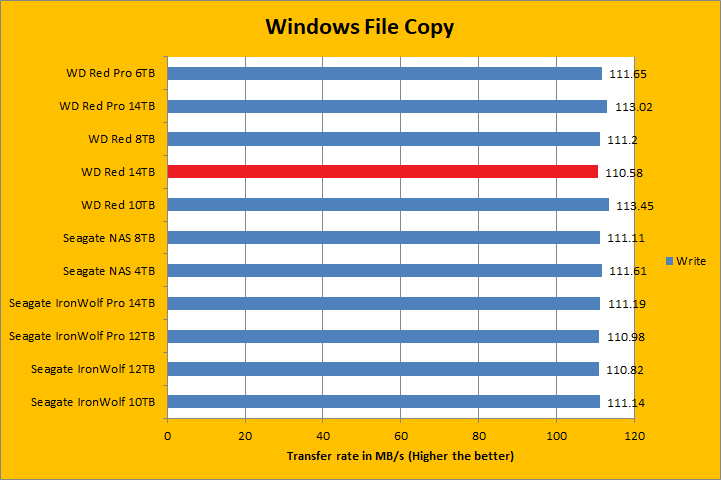
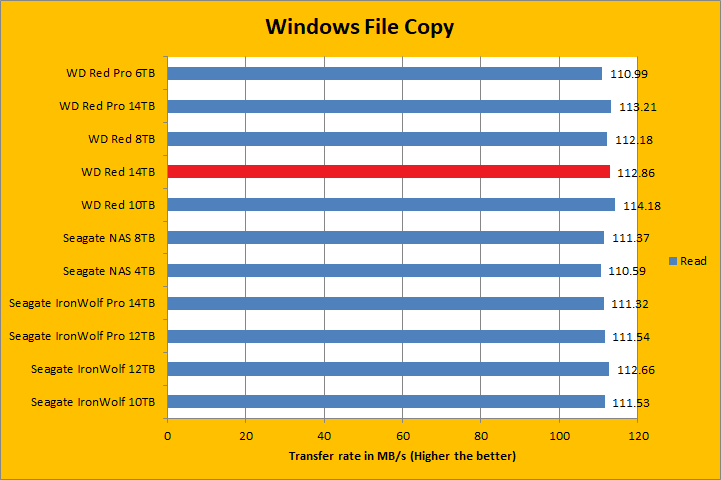
Loaded with different hard disk drives, our ASUSTOR AS3202T was ready to roll. To prevent any bottlenecks on the client side, our system was connected to the network via its integrated Intel Gigabit LAN adapter. We also conducted the above test using a solid state drive on the client side to ensure there was nothing limiting the performance of our ASUSTOR AS3202T than the NAS itself. In both the read and write test, all tested HDDs came to a statistical tie, as we have saturated the bandwidth limit of the Gigabit Ethernet interface.
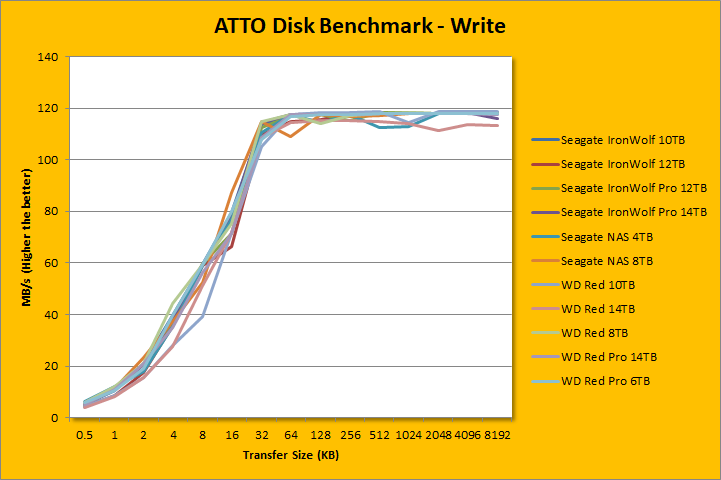
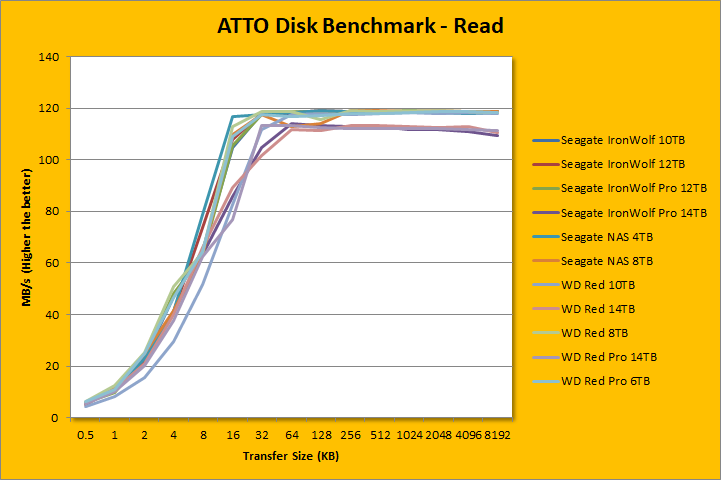
ATTO disk benchmark provides valuable insight into evaluating disk performance; it is especially valuable since it is not local disk limited like Windows file copy -- but rather the network adapter itself. After first using it in our QNAP TS-559 Pro+ review back in 2010, ATTO has been an integral part of our storage benchmarks; used in everything ranging from USB flash drives to solid state disks. Venturing in the area of 115MB/s in write and 113MB/s in read for pretty much everything 32K and up, remember that the theoretical maximum of Gigabit Ethernet is only 125MB/s (1000Mbps / 8) with overhead -- this is about as good as it gets. The Red 14TB's ramp up profile was very similar to the Red Pro 14TB in read, but consistently marginally slower in write.
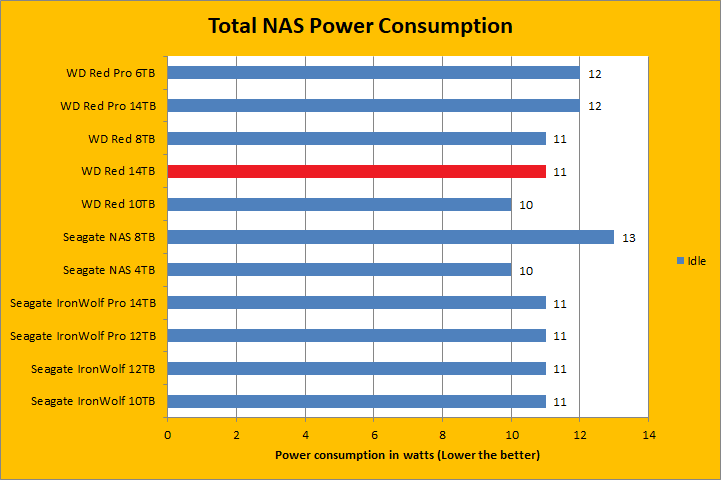
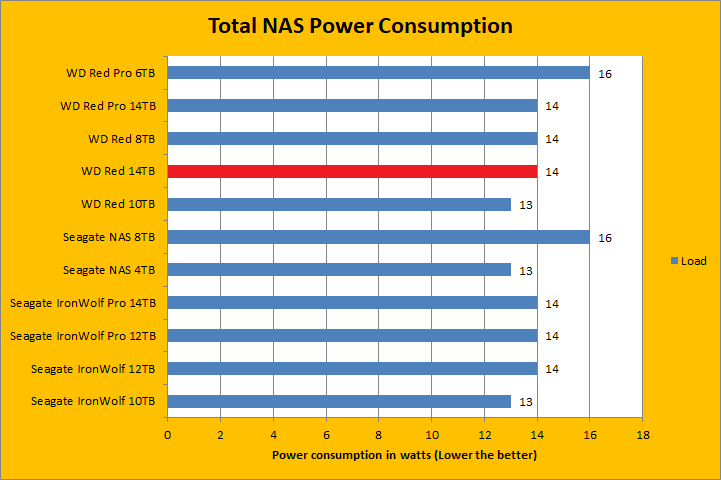
With one hard drive installed, our ASUSTOR AS3202T consumed a moderate amount of power with one Western Digital Red WD140EFFX 14TB hard drive. Thanks to the helium fill as discussed on Page 2 of this review, the Red WD140EFFX 14TB was quite efficient especially considering its capacity. As most network attached storage systems will be running 24/7, and there will more than likely be multiple hard drives installed, every watt will definitely add up on your power bill. When idling, the entire system equipped with the 7,200 RPM Red 14TB took 11W; one less than the WD Red Pro 14TB and Seagate IronWolf Pro 14TB. The gap tightened in load tests. The system equipped with the Western Digital Red WD140EFFX 14TB came in at 14W; same as every other 14TB HDD tested.
Page Index
1. Introduction, Features, Specifications
2. A Closer Look, Test System
3. Benchmark: AIDA64 Disk Benchmark
4. Benchmark: ATTO Disk Benchmark
5. Benchmark: Crystal Disk Mark 7.0
6. Benchmark: HD Tach 3.0.1.0
7. Benchmark: HD Tune Pro 5.70
8. Benchmark: PassMark PerformanceTest 10
9. Benchmark: PCMark 7
10. NAS Performance, Power Consumption
11. Conclusion





